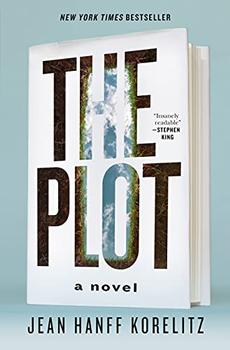Summary | Excerpt | Reviews | Beyond the Book | Readalikes | Genres & Themes | Author Bio

Fortunately, the faculty meeting wasn't terribly taxing. (It was possible Jake had even dozed, briefly, during Ruth Steuben's ritual intoning of Ripley's sexual harassment guidelines.) The returning professors of the Ripley Symposia got on reasonably well, and while Jake couldn't have said he'd become actual friends with any of them, he did have a well-established tradition of a once-per-session beer at The Ripley Inn with Bruce O'Reilly, retired from Colby's English Department and the author of half a dozen novels published by an independent press in his native Maine. This year there were two newcomers in the Richard Peng lobby-level conference room, a nervous poet called Alice who looked to be about his own age and a man who introduced himself as a "multigenric" writer, who intoned his name, Frank Ricardo, in a way that definitely implied the rest of them recognized it—or at any rate ought to recognize it. (Frank Ricardo? It was true that Jake had stopped paying close attention to other writers around the time his own fourth novel began to collect rejections—it had simply been too painful to continue—but he didn't think he was supposed to have heard of a Frank Ricardo. (Had a Frank Ricardo won a National Book Award or a Pulitzer? Had a Frank Ricardo lobbed an out-of-nowhere first novel onto the top of the New York Times bestseller list via viral word of mouth?) After Ruth Steuben finished her recitation and went over the schedule (daily and weekly, evening readings, due dates for written evaluations, and deadlines for judging the Symposia's end-of-session writing awards) she dismissed them with a smiling but steely reminder that the welcome cookout was not optional for faculty. Jake leapt for the exit before any of his colleagues—familiar or new—could talk to him.
The apartment he rented was a few miles east of Ripley, on a road actually named Poverty Lane. It belonged to a local farmer—more accurately his widow—and featured a view over the road to a falling-down barn that had once housed a dairy herd. Now the widow leased the land to one of Ruth Steuben's brothers and ran a daycare in the farmhouse. She professed herself to be mystified about the thing Jake did that got made into books, or how it was getting taught over at Ripley, or who might actually pay to learn such a thing, but she had held the apartment for him since his first year at Ripley—quiet, polite, and responsible with rent were apparently too rare a combination not to. He had made it to bed at about four that morning and slept until ten minutes before the faculty meeting began. It wasn't enough. Now he pulled the curtains and passed out again, waking at five to begin assembling his game face for the official start of the Ripley term.
The barbeque was held on the college green, surrounded by the Ripley's earliest buildings, which—unlike Richard Peng Hall—were reassuringly collegiate and actually very pretty. Jake loaded up a paper plate with chicken and cornbread and reached into one of the coolers to extract a bottle of Heineken, but even as he did a body leaned against him, and a long forearm, thickly covered with blond hair, tipped his own forearm out of its trajectory.
"Sorry, man," said this unseen person, even as his fingers closed around Jake's intended beer bottle and pulled it from the water.
"Okay," Jake said automatically.
Such a pathetically small moment. It made him think of those bodybuilding cartoons in the back of old comic books: bully kicks sand in the face of ninety-eight-pound weakling. What's he going to do about it? Become a bulked-up bully himself, of course. The guy—he was middling tall, middling blond, thick through the shoulders—had already turned away, and was popping the bottle cap and lifting it to his mouth. Jake couldn't see the asshole's face.
"Mr. Bonner."
Jake straightened up. A woman was standing beside him. It was the newcomer, from the faculty meeting that morning. Alice something. The nervous one.
Excerpted from The Plot by Jean Korelitz. Copyright © 2021 by Jean Korelitz. Excerpted by permission of Celadon. All rights reserved. No part of this excerpt may be reproduced or reprinted without permission in writing from the publisher.
Show me the books he loves and I shall know the man...
Click Here to find out who said this, as well as discovering other famous literary quotes!
Your guide toexceptional books
BookBrowse seeks out and recommends the best in contemporary fiction and nonfiction—books that not only engage and entertain but also deepen our understanding of ourselves and the world around us.